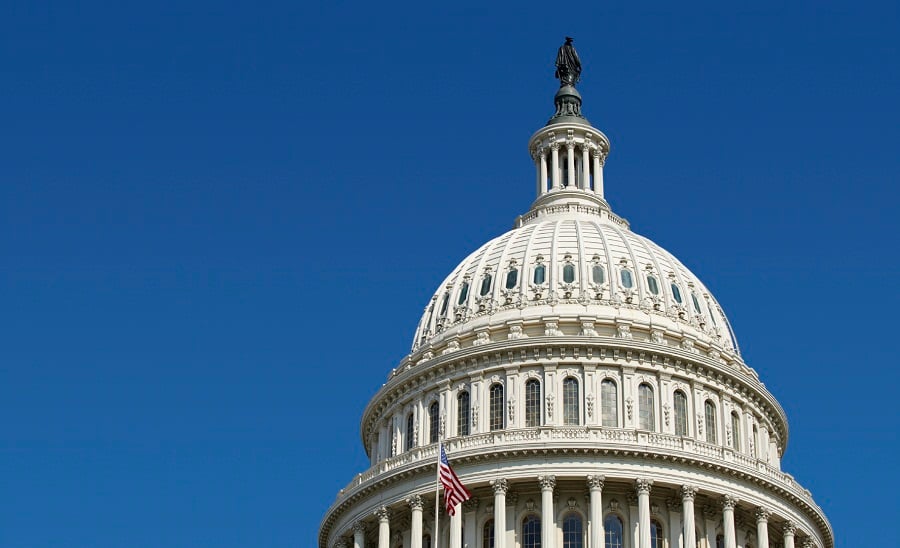

If you think the tension in Washington has been high during the first two years of the Biden administration, wait until Republicans take control of one or both houses of Congress.
Although conventional wisdom often is derided as lazy analysis, the take I wrote above is pretty much everyone’s guess for what awaits after the GOP wins the House in November's midterm elections.
That outcome is about as close to a lock as a political prediction can be because the GOP only needs to gain five seats for a House majority. It enjoys structural advantages thanks to redistricting and is putting the inflation blame on President Biden.
The 50-50 Senate, which Democrats control thanks to the tie-breaking vote of Vice President Kamala Harris, remains a toss-up. But if Republicans win the Senate, too, a day — OK, months, maybe two years — of reckoning likely awaits Democrats.
When Republicans take charge of congressional committees, they can set the agenda for hearings and legislation. For the House Financial Services Committee, that means likely Chairman Patrick McHenry, R-N.C., will haul SEC Chairman Gary Gensler up to Capitol Hill to be grilled over an agenda Republicans say is too aggressive.
On the legislative side, McHenry has already released what he calls a Capital Formation Agenda. Republicans and their allies have complained that the SEC has ignored that part of its mission while it has proposed nearly three dozen rules in other areas, such as environmental, social and governance investing and cybersecurity.
Republicans want the SEC to focus more on helping start-up businesses raise the funds they need to grow and create jobs. They also want the agency to allow more ordinary investors — those who don’t meet the income and net worth thresholds to be accredited investors — to purchase private stocks.
McHenry includes in his agenda a proposal that would expand the accredited investor definition to include anyone who invests not more than 10% of the greater of their annual income or net assets.
That will surely draw opposition from Democrats, who tend to focus on the potential for investor harm if rules around private placements are loosened. But not all Democrats will dismiss the idea out of hand.
Rep. Jim Himes, D-Conn. and a member of the House Financial Services Committee, said he has grown increasingly worried about the capital markets becoming bifurcated. He's concerned that Main Street investors aren't able to benefit from yield in the private markets that institutional investors can access.
“Here’s an area where I think you can get a lot of bipartisan support,” Himes said in September at an Investment Adviser Association event in Washington. “That doesn’t mean I want to abandon the protections that are out there for retail investors. This shouldn’t be that hard to do.”
That point of view is shared by a trade group pushing for more capital formation legislation to complement the JOBS Act and other previous bills.
“If there is an area for bipartisan rulemaking and legislation, it’s in capital formation,” said Christopher Iacovella, chief executive of the American Securities Association.
Retirement savings is another policy area that is characterized by bipartisanship. Perhaps Congress will approve Secure 2.0 in the lame-duck session after the election. If so, there will likely be other opportunities for cooperation next year.
Each party has something to contribute to retirement policy, said Donald Jones, a partner at Fiduciary Wise.
“There’s a mindset for Democratic folks to be concerned about those who don’t have a voice,” Jones said. “There’s a tendency by Republicans to favor plan sponsors. You need the yin and the yang. They’re both right to an extent.”
On some issues, the yin and yang are unlikely to be reconciled. The most explosive one will be ESG. Look for Republicans to use every bit of leverage they have to incorporate riders in funding bills that would prohibit the SEC from implementing ESG rules.
Gensler has said that the SEC doesn’t favor ESG investing; it just wants to strengthen disclosures so investors get all the ESG information they’re demanding. Republicans assert the SEC is promoting ESG to advance Democratic goals on climate change, an effort they say could harm investment returns.
“Our capital markets are now fighting the culture wars,” Iacovella said. “That is going to make them a very politicized place to do business.”
The floors of the House and Senate will offer an even more politicized atmosphere when the new Congress is seated in January. Jones said lawmakers aren't reading the electorate correctly when they fight, because most Americans are in the middle of the political road.
“Politicians can’t understand that,” he said. The best approach to policymaking is “working together without seeing the other party as the enemy.”
That hopeful formula requires lawmakers to find the courage to make bipartisanship as reliable a political winner as partisan warfare has proven to be.

Relationships are key to our business but advisors are often slow to engage in specific activities designed to foster them.

Whichever path you go down, act now while you're still in control.

Pro-bitcoin professionals, however, say the cryptocurrency has ushered in change.

“LPL has evolved significantly over the last decade and still wants to scale up,” says one industry executive.

Survey findings from the Nationwide Retirement Institute offers pearls of planning wisdom from 60- to 65-year-olds, as well as insights into concerns.
Streamline your outreach with Aidentified's AI-driven solutions
This season’s market volatility: Positioning for rate relief, income growth and the AI rebound
